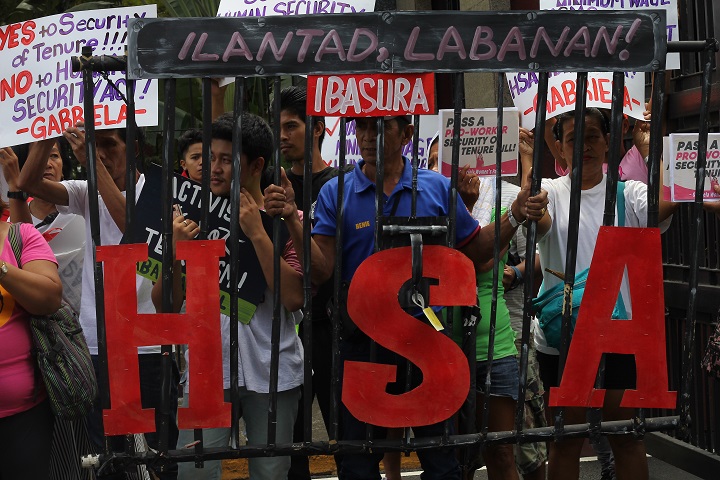“The [anti-terror] bill provides powers to the executive branch that properly belong to the judicial branch.”
By RONALYN V. OLEA
Bulatlat.com
MANILA – Lawyers pointed out provisions providing extraordinary powers to the executive branch in the consolidated anti-terror bill.
Antonio La Viña, law professor at the Ateneo de Manila University and University of the Philippines, told the House Committee on Public Order and Safety during a hearing March 2, “The [anti-terror] bill provides powers to the executive branch that properly belong to the judicial branch.”
The consolidated version of the bill provides broad powers to the Anti-Terrorism Council (ATC), which include filing of applications to declare organizations as terrorist, to conduct surveillance against suspected persons/organizations, to freeze assets of suspected terrorists, among others. The ATC is also granted authority to order arrest and detention without judicial warrant of persons suspected of the crime.
Former Bayan Muna Rep. Neri Javier Colmenares, in his presentation, pointed out provisions violating the right to due process, right to bail and right to presumption of innocence.
Colmenares cited Sec. 27 which allows warrantless arrest and detention for up to 30 days and state agents having no criminal liability.
Organizations may be declared terrorist without the benefit of hearing by virtue of preliminary order of proscription. Under the bill, the Department of Justice (DOJ), with the authority of the Anti-Terror Council and upon the recommendation of National Intelligence Coordinating Agency (NICA), may file an application to designate any group as terrorist. The Court of Appeals only needs to establish probable cause before issuing preliminary order of proscription within 24 hours from the filing of the said application.
La Viña asked legislators to put safeguards in place, and ensure that judicial processes are not ignored.
Colmenares criticized the removal of safeguards previously stated in the Human Security Act of 2007. The consolidated bill removes in its entirety Sec. 50 of the HSA which provides damages of P500,000 per day for unproven charge of terrorism. Sec. 18 of the HSA, which states that surveillance is a requisite for warrantless arrest is also deleted, Colmenares said.
Colmenares also maintained that the overbroad definition of terrorism is dangerous. He said that joining protest actions and organizations espousing change could be labeled as terrorists.
Integrated Bar of the Philippines National President Domingo Egon Cayosa, meanwhile, noted that the threat to commit a terrorist act is equally punished as consummated terrorist act.
Under the bill, the following acts shall suffer the penalty life imprisonment without the benefit of parole:
– planning, preparing and facilitating the commission of terrorism
– proposal to commit terrorism
– recruitment to a terrorist organization
– providing material support to terrorists
Colmenares called on legislators to junk the consolidated bill as this would only target political dissenters.
The post Lawyers question anti-terror bill provisions ‘undermining judiciary, due process’ appeared first on Bulatlat.

